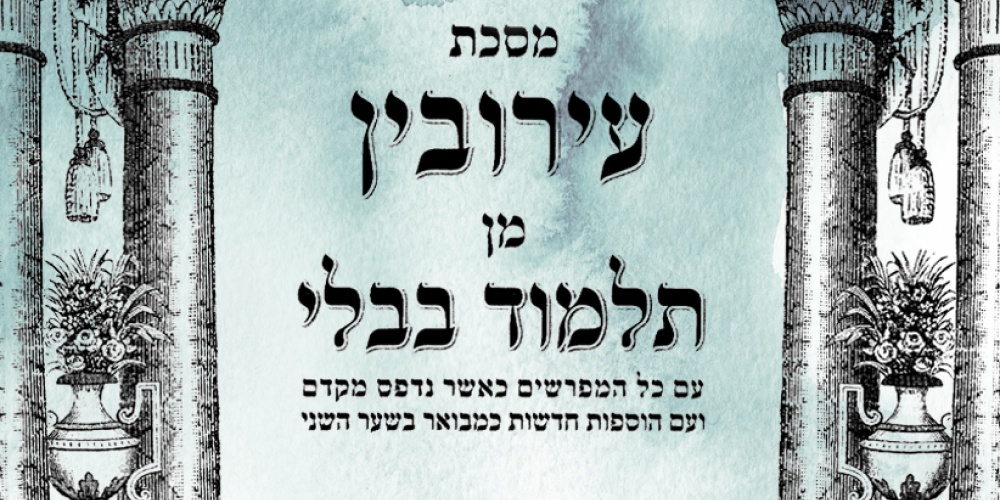
"A pot with two cooks is neither hot nor cold" (Eruvin 3a). This popular folk saying is used by the Talmud to explain Rava of Parzkiah's view regarding the validity of an eiruv.
First, some background information: In Talmudic times, it was common for a few homes to share a common courtyard, and a few courtyards to share an alleyway leading to a public thoroughfare. This alleyway, referred to as a mavui, would generally be closed on three sides, with the fourth side open to the public. As one side was open to the public, the rabbis ruled that in order to carry from the courtyard to the mavui, one had to erect some kind of marker to symbolically close that fourth side. The most common method was to place a beam across the opening, which would serve as a reminder to people that they were now entering a "private area".
The opening Mishnah in Masechet Eiruvin teaches that if the mavui is more than 20 amot (approximately 35 feet) high, it has to be lowered, as one does not normally notice things of a greater height. The gemara immediately notes a parallel law in the case of a sukkah, which is invalidated if the schach is more than 20 amot from the ground.
In that uniquely Talmudic fashion, the gemara questions what the ruling would be if a (thick) beam or branches ofschach were placed in such a matter that the bottom of the beam (or schach) was under 20 amot, but the top was over 20 amot. Not surprisingly, the gemara records all four possible opinions: that both a sukkah and mavui would be invalidated, that both are good, that it is fine in the case of a mavui but not a sukkah, and that it is fine in the case of asukkah but not a mavui.
In explaining the reasoning of Rava of Parzkiah as to why such would be good for a sukkah but not for a mavui, the gemara invokes the above noted folk saying. People are much more likely to take responsibility for something when they are the only ones who can help. When one can "rely" on someone else, one usually does; so two people relying on each other means that nothing will get done. The pot will get neither hot not cold.
Applying this well-known psychological truism to our cases at hand, a mavui, being open to the public, has many people passing through; and thus, no one takes personal responsibility to ensure the mavui is not too high, relying on the many others who use it to do so. If other people use it, one reasons, someone must have ensured that it was correctly done. However, a sukkah is one's private abode, and one will personally take the necessary steps to ensure it is constructed properly. If not I, then who?
This phenomenon, demonstrated by experiment and in real life, explains why people are more likely to intervene to help another if they are alone, and to ignore pleas for help if others are around. The surest way to ensure that little gets done is to increase the number of those responsible to act.
Politicians and bureaucrats understand this quite well. When one wants to ensure that little to nothing will get done, one appoints a large committee. To ensure even better optics, people representing a wide range of interests will be brought together, almost guaranteeing that nothing will be accomplished.
Many of the great ideas and discoveries of history were discovered by those working alone--often in the face of ridicule of the masses. We must guard against placing too many cooks in the kitchen; the only way to ensure something gets done is to do it yourself.



